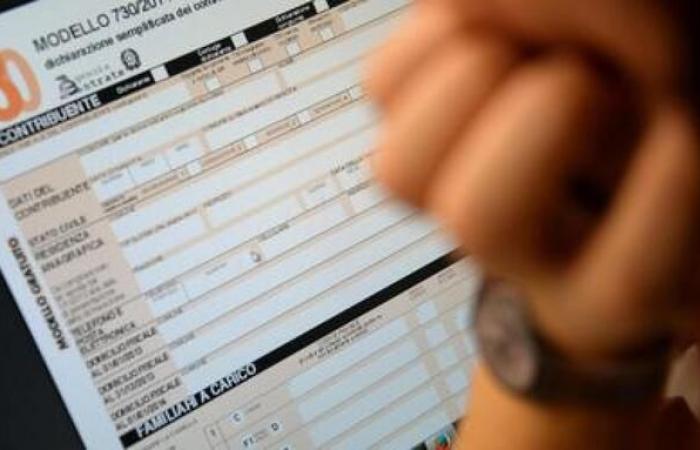Cutting the wedge and Irpef at three structural rates, support for the birth rate, but also Ires rewards and funds for the Bridge and the Tav. The cornerstones are work, low incomes and families, but the changes approved in the Chamber broaden the field of action of the third maneuver of the Meloni government, which mobilizes 30 billion, adding a series of measures ranging from aid to businesses, to resources for major works, up to the salaries of non-parliamentary ministers.
Here are the main interventions.
TAX. The revision of the wedge cut provides for the recognition of a bonus for employees with an income of up to 20 thousand euros, and for those between 20 and 40 thousand a deduction with decalage. For Irpef there is the stabilization of the rates in three brackets. The interventions on the wedge and Irpef alone absorb over 17 billion. There are resources to support the poor and for purchases with the 'Dedicated to you' card. For companies, the IRES reward arrives: reduced by 4 points for those who set aside at least 80% of 2024 profits and reinvest at least 30% of them in the company (and no less than 24% of 2023 profits).
The employee income ceiling is increased from 30 to 35 thousand euros to access the flat tax for the self-employed part. The web tax will only apply to large companies with revenues above 750 million, the tax on cryptocurrencies remains at 26%.
Taxes on gaming and betting are increasing.
FAMILY. Deductions are changing, with a restriction on incomes over 75 thousand euros and the introduction of the so-called family quotient. To encourage the birth rate, the “new birth bonus” also comes, a one-off payment of one thousand euros for each new born in households with ISEE under 40 thousand euros. The nursery bonus is extended to everyone and made structural (again for ISEE up to 40 thousand euros). Parental leave is expanded to 80%, for three months instead of the current two. The 'Family Dowry' fund arrives for the extra-curricular activities of young people aged 6 to 14 in families with ISEE up to 15 thousand euros. The Fund for the support and enhancement of speakers is born.
PENSIONS. The minimums will be revalued in 2025, going from 614.77 euros to 617.9. The exit flexibility measures Quota 103, Social Ape and Women's Option are extended. The Maroni bonus is also strengthened for those who choose to stay at work.
Those who are in the contributory system will be able to combine compulsory and complementary social security to reach a pension allowance equal to three times the minimum, managing to bring their pension forward to 64 years.
WORK. The increase in the cost allowed as a deduction for new hires, equal to 20%, increased to 30% for young people and women, is extended for three years. Nuova Sabatini is refinanced and the tax credit for investments in the SEZ for the South is extended to 2025. The tax relief on productivity bonuses has also been extended for three years (from 10% to 5%). The fringe benefit ceiling rises to one thousand for everyone, two thousand for those with children; increased amounts for new hires who agree to move more than 100 kilometers from home. The tax exemption limit for tips that waiters receive from customers rises from 25 to 30%. The extension of the guarantee fund for SMEs arrives. A fund with 3 million over 3 years is also planned to support Ilva related companies. An ad hoc fund of 70 million arrives to finance workers' participation in management and profits. The fund for families of victims of work accidents is rising and there is also a crackdown against the abuse of Naspi.
HOUSE. The renovation bonus and the ecobonus remain at 50% for first homes, dropping to 36% for others, with a ceiling of 96 thousand euros. Same scheme also for the earthquake bonus, without spending cap. The furniture bonus has been extended to 5 thousand euros. Mortgage relief for the purchase of a first home for those under 36 and young couples has been renewed until 2027. The bonus for household appliances arrives with a maximum contribution of 30% of the cost.
However, gas boilers can no longer be deducted.
HEALTH. New resources to finance the standard national healthcare requirement, increased by 1.3 billion in 2025. A portion of the resources is set aside in view of the 2028-2030 contract renewals. Emergency room allowances and those of doctors and nurses are increasing. 5% flat tax for nurses' overtime. From 2025 all medical prescriptions will be electronic. More resources for lung cancer prevention. Psychologist bonus funds increased, psychological support arrives at school.
PA, MANAGERS AND MINISTERS. Partial block of turnover in the Public Administration but local authorities, law enforcement agencies, firefighters and researchers are excluded. There is also a cap on the compensation of the top management of entities that receive public funds. For these entities there will be no obligation for MEF auditors but a tightening of budget controls if state aid is “significant”. A tightening of Rai's costs is expected, limited to external consultancy. The equalization of the salaries of non-parliamentary ministers with those of their elected colleagues is skipped: they will only have a travel reimbursement. The ban on foreign compensation arrives, the so-called anti-Renzi rule, even for members of the government.
WORKS AND TRANSPORT. An extra billion to the Tav and another to Ferrovie for the Pnrr works. The new funds allocated to the Strait Bridge amount to 1.5 billion (with 500 million for related works). Extension of up to 20 years for electricity concessions: the increased revenue goes towards reducing bills. Boarding taxes increase by 50 cents for non-EU flights.
CUTS AND COVERAGES. One billion is obtained from the reorganization of deductions, while 3.5 billion comes from the banking-insurance chapter. Interventions on DTAs and stock options are envisaged for banks, while insurance companies will have to pay stamp duty annually. A further contribution of 400 million comes from the banks for the IRES cut. In the three-year period 2025-2027, the spending review by the ministries provides for cuts of around 7.7 billion.
Reproduction reserved © -






